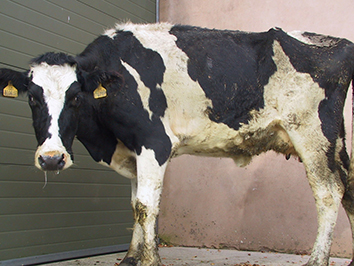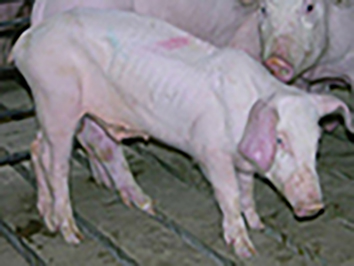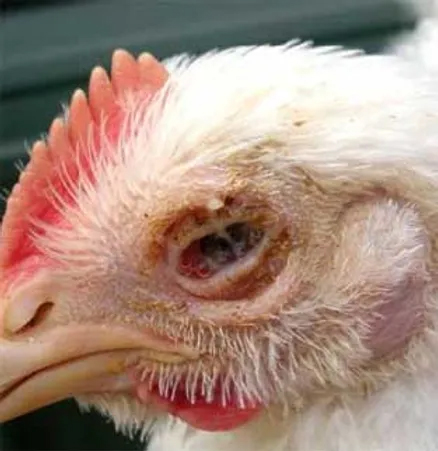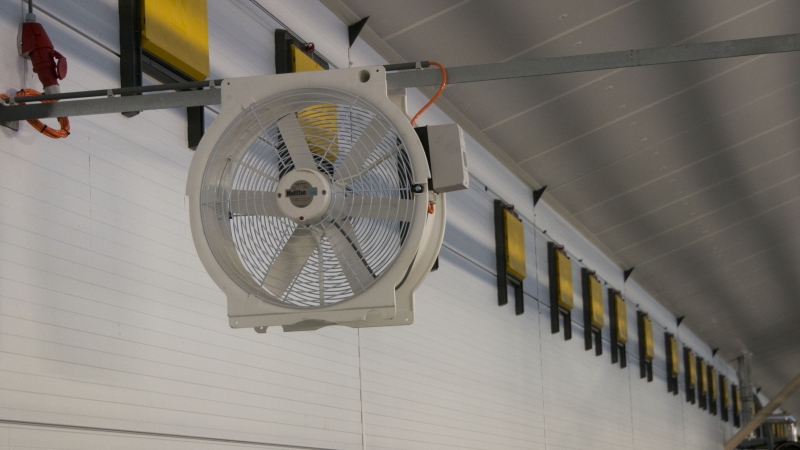Effects of ammonia on animal respiration
Ammonia has a strong odor and can cause irritation to the eyes, nose and throat of both humans and animals. Animals that live in an environment where the concentration of ammonia is high can develop respiratory problems. This can lead to coughing, sneezing and reduced lung function. With prolonged exposure, ammonia can also lead to chronic bronchitis or pneumonia.

Effects of ammonia on animal digestion

Ammonia can also have a negative effect on animal digestion. In the rumen of ruminants, ammonia is converted into urea, which is then excreted in the urine. At a high concentration of ammonia, this conversion can be disturbed, which can lead to impaired digestion of food. This can lead to a lower feed intake and ultimately a lower productivity of the animal.
Effects of ammonia on the skin and fur of animals
Ammonia can also damage the skin and fur of animals. A high concentration of ammonia in the environment can lead to irritation and inflammation of the animal’s skin and eyes. In ruminants, ammonia can also damage the wool or fur. This can lead to reduced insulation and thus increased sensitivity to cold temperatures.
Ammonia also softens the claws of domesticated ungulates. Moisture and ammonia can soften the skin, making it easy for bacteria to penetrate the skin. This results in inflammation that makes animals lame.

Measures to reduce exposure to ammonia
To protect animal health, it is important to reduce exposure to ammonia in the barn. Below are some measures you can take as a farmer:
- Ensure good ventilation in the house to reduce the concentration of ammonia.
- Make sure there is enough space in the house to reduce the production of ammonia.
- Clean the stable regularly to reduce the build-up of manure and urine.
- Ensure good drainage of urine to promote the conversion of ammonia to urea.
- Use enough litter to reduce ammonia uptake.
- Spray MicroAktiv®-BS on the floor where the animals walk to accelerate the absorption of ammonium by the bacteria present in the manure.

Effects of MicroAktiv®-BS use in stables
MicroAktiv®-BS has a special effect on the animal manure that the animals leave behind on the living floor. Firstly, the composition of the manure is much more homogeneous, making it easier to pump. But perhaps the biggest effect is the reduction in ammonia emissions. Reductions of 70% have been achieved in houses where MicroAktiv®-BS has been applied, which has a major influence on the living and working conditions in the houses. Listed below are a number of effects of using MicroAktiv®-BS in stables:
- More stable, more active biomass in the manure;
- Manure is more homogeneous and therefore easier to pump;
- Significantly less ammonia and hydrogen sulfide emissions from the manure;
- Improved living conditions for the animals, which therefore have less stress and diseases;
- Decreased development of pathogenic bacteria such as, Salmonella sp., Listeria monocytogenes, Staphylococcus hyicus, and Clostridium perfringens;
- Better feed conversion and lower mortality rate.
Conclusion
In addition to existing measures such as ventilation and proper cleaning, the use of MicroAktiv-BS can have a major effect on ammonia emissions from animal manure. Tests have shown that ammonia concentrations in the barn air can drop by 70%. This improves animal health, but also that of people who work in the stables. For the animals, this means that there is less need for antibiotics to combat diseases and that survival in the barn is higher, which ultimately means that more animals can be sent to the slaughterhouse. The improved feed conversion means that on balance less feed is needed to reach the target weight of the animals, which results in savings for the farmer.
